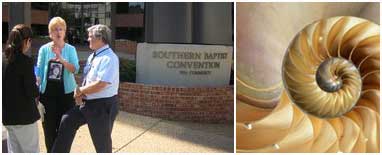
StopBaptistPredators.org
| Autonomy: It's a Bogus Excuse | ||||
Southern Baptist officials claim they can't do anything about clergy child molesters because each Baptist church is purportedly autonomus. "We have no authority over local churches," they say. It's a bogus excuse. It's a "smoke-screen." It's also morally reprehensible for Baptist officials to use autonomy as a rationalization for leaving kids in harm's way rather than taking action to expose ministers who prey on them. SNAP requested the creation of an independent objective review board to receive and consider reports about clergy sex abuse, and to inform congregations. It's what many other faith groups have done. Why can't Southern Baptists? [Read answers to frequently asked questions about the request for an independent review board.] When Southern Baptist leaders want to take action, they don't let the principle of autonomy prevent it.
Answer: They could if they wanted to. If denominational officials can disfellowship churches for having women pastors, why can't they disfellowship churches that retain ministers with substantiated reports of child molestation? Answer: They could if they wanted to. As Bill Leonard, dean of Wake Forest University Divinity School, explained, "the SBC's own history makes the autonomy defense a shaky one." Not only do denominational leaders already investigate and oust churches for other reasons, but they also use pooled funds from local churches for all sorts of cooperative endeavors.
If Southern Baptist churches can work cooperatively to give ministers more secure retirements, why can't they work cooperatively to make churches safer for kids? Answer: They could if they wanted to. The "no authority" excuse is nothing new. It's the same bogus excuse that Catholic bishops made before they finally took action in 2002. The U.S. Conference of Catholic Bishops repeatedly claimed it had "no direct authority" over any diocese, "each of which is civilly and canonically independent." (see chapter 1 in linked document) Yet, finally, after hundreds of victims spoke up, they found a way to institute oversight mechanisms for accountability. In fact, Southern Baptist president Frank Page expressly acknowledged this similarity, but here's how he explained it: "While Catholic bishops did claim to have 'no authority,' Southern Baptist leaders truly have 'no authority'..." Huh??? So, according to Frank, Catholic bishops merely claimed it, but Southern Baptist officials are saying it "truly." Of course, either way, whether they claim "no authority" or "truly no authority", it's kids who remain at risk. To this day, the occasional diocese refuses to adhere to the child-protection policies established by the U.S. Conference of Catholic Bishops, and other dioceses adhere incompletely. But the fact that dioceses retain the power to refuse compliance has not prevented the U.S. Conference of Catholic Bishops from instituting review mechanisms. And look at how similar a recalcitrant bishop's remarks are to those of Southern Baptist officials. Bishop Bruskewitz of Lincoln, Nebraska justified his refusal to follow procedures of the U.S. Conference of Catholic Bishops by saying: "Any sexual abuse of minors or others are mortal sins. Such sins and heinous crimes should be appropriately punished by the authorities of the church and state." This is almost identical to what Southern Baptist officials say. They tell you what a terrible thing sexual abuse is, but then they effectively shrug and say that local churches and law enforcement are where the problem should be addressed, rather than in a systematic, comprehensive way by the denomination as a whole. If the U.S. Conference of Catholic Bishops could find a way to systemically address the clergy sex abuse crisis despite the claimed independence of each diocese, why can't the Southern Baptist Convention find a way to systematically address the clergy sex abuse crisis despite the claimed autonomy of each church? Answer: They could if they wanted to. Finally, here's the real clincher...American Baptist Churches also profess the autonomy of local churches, and yet they instituted regional review boards that can consider reports of clergy sex abuse. The review boards don't have authority over churches, but they are able to at least bring abuse cases into the light of day. If autonomy doesn't prevent denominational leaders of the American Baptist Churches from taking action to protect kids against clergy predators, why does it prevent denominational leaders of the Southern Baptist Convention from taking action? Answer: It doesn't. Southern Baptist officials are using autonomy as a bogus excuse for inaction.
|
